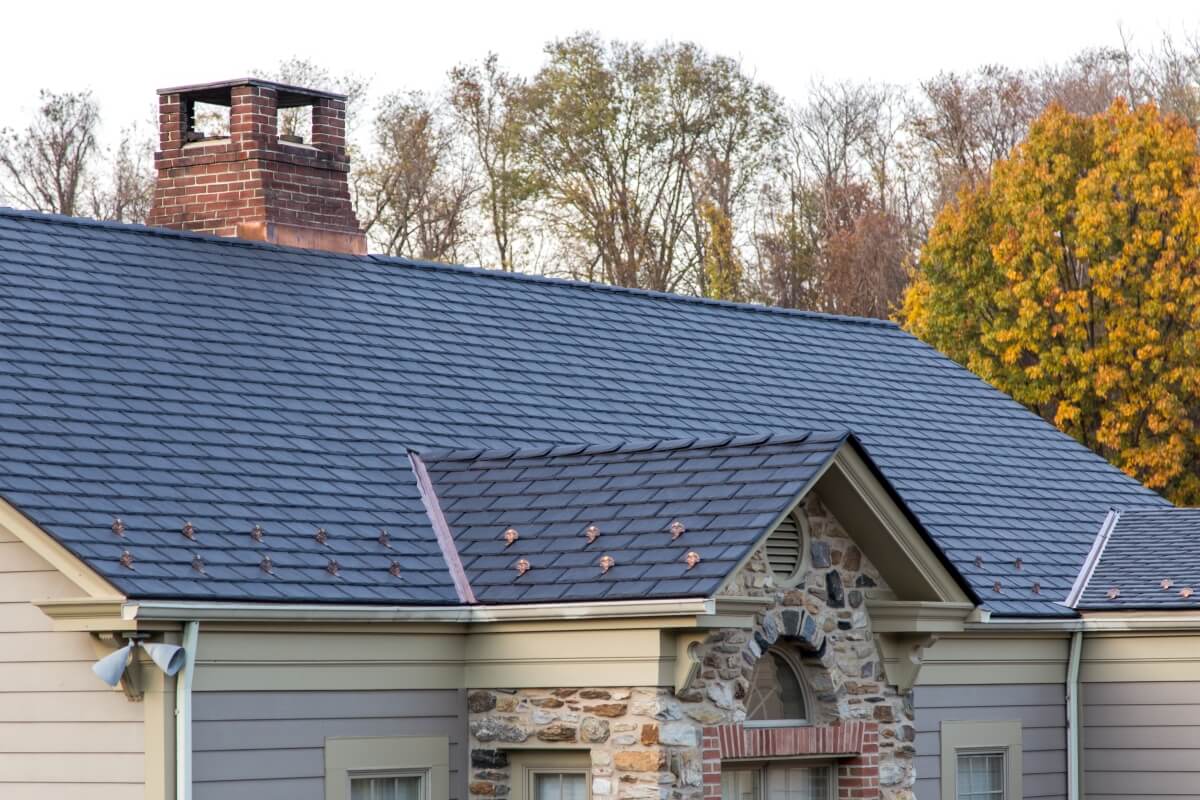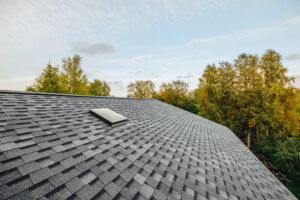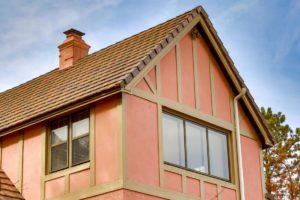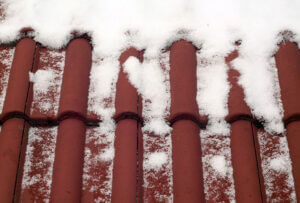All About Synthetic Composite Roofing
If you are in the market for a new roof, you will want to consider your roofing material options carefully. In Colorado Springs, it’s important to choose a roofing material that is durable enough to withstand hail and other elements. In this part of our series, we will explore the pros and cons of synthetic composite roofing.
What is Synthetic Composite Roofing?
A lightweight and durable option, synthetic composite roofing is made of recycled polymers and other sustainable materials. In fact, this is one of the most environmentally friendly roofing choices available. There are numerous options to choose from. Companies such as Brava, DaVinci, Cedur, and F-Wave carry different types of synthetic composite roofing. With this type of roof, you can get the look of tile, slate, and cedar shake roofing in a variety of colors. These roofs easier to maintain and often last longer than the natural materials that they mimic the look of. Additionally, these roofs maintain end-of-life recyclability.
How Does the Cost of Synthetic Composite Roofing Compare to Other Materials?
Synthetic composite roofs are not the least expensive on the market, but they generally cost less than their natural material counterparts, like natural slate, clay tile, and asphalt shingles. Depending on the brand and specific product you choose, some can cost just as much or more than stone coated steel roofs. Homeowners looking to achieve the aesthetic of natural tile roofing, but don’t want the cost or maintenance involved, often opt for this type of roofing. With a synthetic roof, you can save money on repairs to replace broken clay or cement tiles. Synthetic roofs are not unbreakable, but they are more durable and can last longer than natural tile roofs.
How Long Will a Synthetic Composite Roof Last?
Most synthetic composite roofs are warranted to last 50 years or have a limited lifetime warranty. However, most modern synthetic roofs have only been around since the early 1990s and the actual lifespan has yet to be proven. Synthetic composite roofs are fire and hail resistant. While some have special underlayment requirements, these roofs can be Class A rated for fire resistance. Furthermore, this is a UL2218 Class 4 rated roof type, meaning they can withstand 2” hailstones without sustaining damage. In addition to the fire and hail ratings, these roofs are warranted to withstand winds of 110-130 mph. The durability and longevity of your synthetic roof can vary by brand. If you choose an F-Wave REVIA roof, for example, you will receive a 5-year hail damage warranty as a part of a 50-year faded warranty. So, it’s a good idea to research different roofing brands and what manufacturer warranties they offer to make the right decision for your home.
If you are looking to replace your roof, consider synthetic composite roofing. There are many style and color options available. These roofs can boost your home’s curb appeal as they mimic the look of natural clay, slate, and wood shake roofing. The benefits of this type of roof include a lower cost (as opposed to their natural material counterparts), less maintenance, and superior durability. We’ll discuss other roofing material options to consider in our upcoming blog posts along with the pros and cons to consider for each material. Give us a call at 719-487-7663 today or contact us online.




